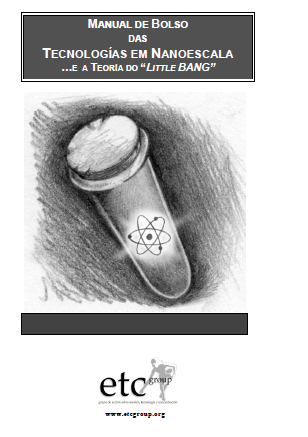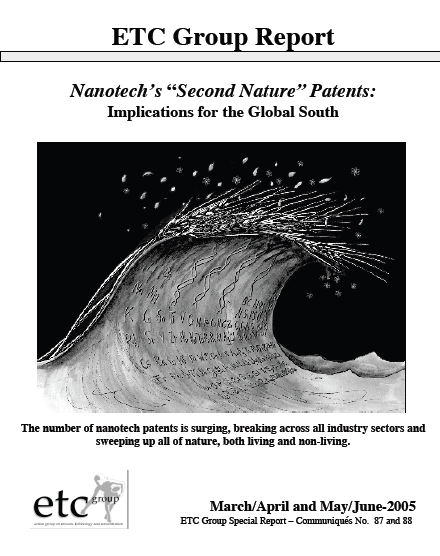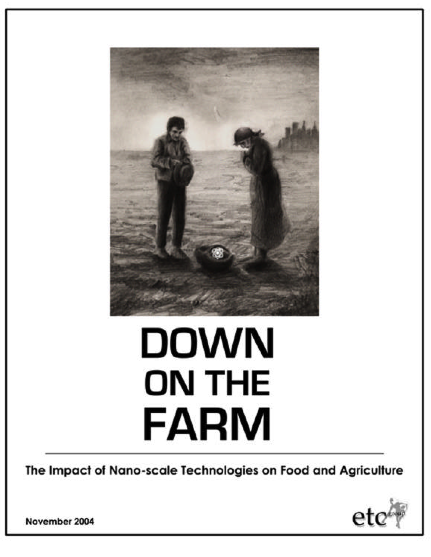Manual de Bolso das Tecnologias em Nanoescala ...e a Teoria do "Little BANG"
Submitted by ETC Staff on
O Grupo ETC anuncia a publicação do "Manual de Bolso das Tecnologias em Nanoescala ...e a 'Teoria do Little Bang'", um guia básico de nanotecnologia - um conjunto de técnicas para manipular a materia na escala dos átomos e das moléculas (20 páginas).



